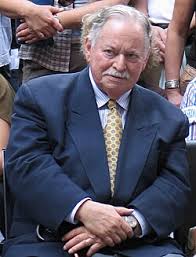
Introduction
Jacques Parizeau, a prominent figure in Quebec politics, passed away in 2015 but remains an influential name in discussions surrounding Quebec sovereignty and identity. As the former Premier of Quebec and a leading proponent of the separatist movement, Parizeau’s legacy continues to shape the political landscape of the province. His contribution to the politics of Quebec during a transformative era is significant in understanding the province’s current identity and its continual pursuit of autonomy.
Political Career and Sovereignty Advocacy
Born on August 9, 1930, Jacques Parizeau’s political journey began with his involvement in the Liberal Party before joining the Parti Québécois (PQ) in 1968. His political philosophy was rooted in the belief of Quebec’s right to self-determination, and he played a key role in the party’s rise. Parizeau served as the Minister of Finance in the PQ government of René Lévesque, where he gained recognition for his fiscal policies and economic management.
In 1994, he became the 26th Premier of Quebec after the PQ won a majority in the National Assembly. Parizeau was at the helm during the 1995 Quebec referendum, a pivotal moment in Quebec’s history, where he passionately campaigned for sovereignty. The narrow defeat of the “Yes” side by a mere 1.16% marked a significant turning point. Following this loss, he infamously remarked, “The referendum was stolen,” which sparked both controversy and dialogue about French-English relations in Canada.
Legacy and Impact
Despite the referendum’s outcome, Jacques Parizeau is credited with solidifying the conversation around Quebec’s place in Canada. His vision for a sovereign Quebec was based on the belief that the province could thrive socially and economically outside of Canada. His policies emphasized social justice and economic independence, drawing significant support within the Québécois community.
Following retirement, Parizeau remained active in speaking engagements and continued to influence new generations of politicians. His contributions to the discourse on nationalism and cultural identity have led to ongoing debates about Quebec’s future direction, particularly in light of recent challenges and changing demographics.
Conclusion
Jacques Parizeau’s life and work resonate deeply within Quebec’s social and political fabric. His passion for Quebec sovereignty and profound insights into economic policies set the foundation for ongoing discussions about the province’s autonomy. As Quebec continues to evolve, Parizeau’s influence will undoubtedly be felt in the ongoing conversations about identity and independence. His legacy serves as a reminder of the tensions and aspirations that define Quebec’s complex relationship with Canada.



